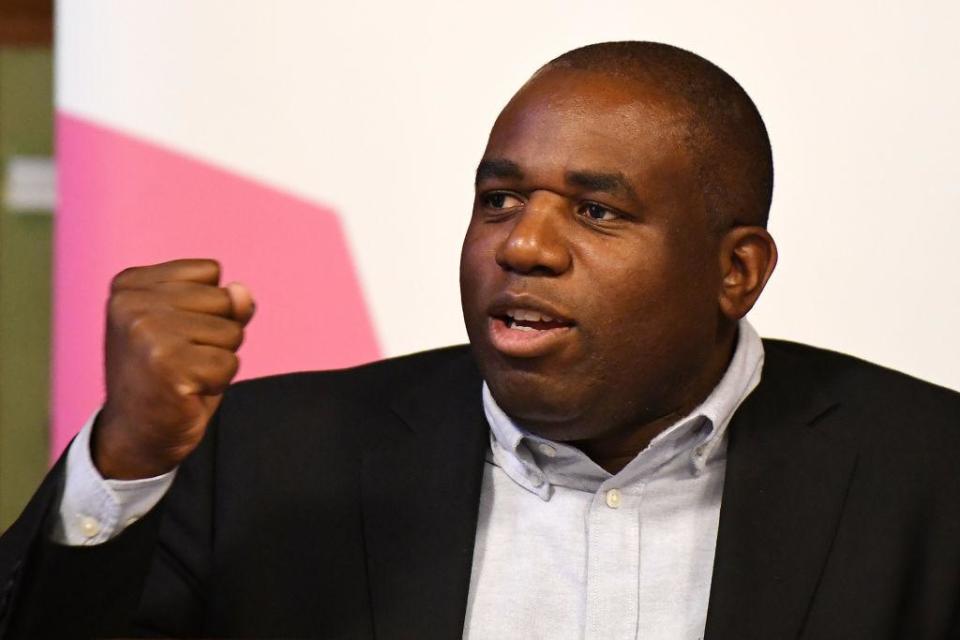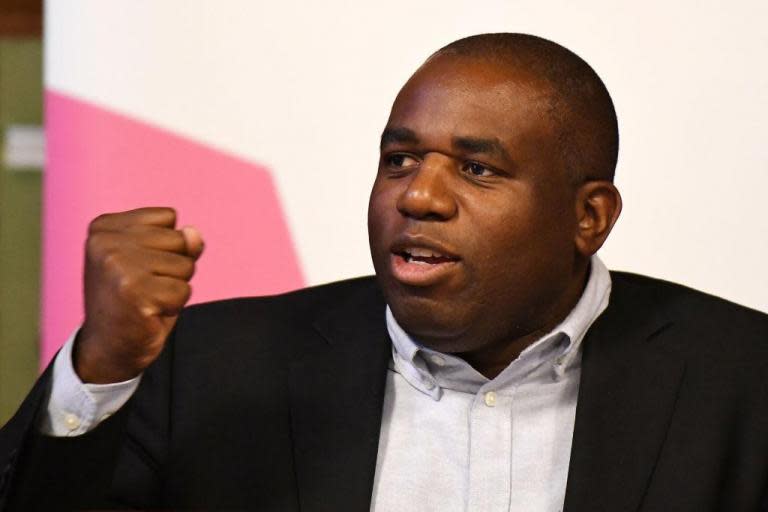Stop and search is 'ineffectual and racially unjust', says David Lammy
Stop and search is an “ineffectual” practice and an “integral cog in a racially disproportionate” criminal justice system, Labour MP David Lammy has said.
The politician recalled his own experience of being “ambushed” by police officers at the age of 12, when he was stopped for matching the description of a mugger.
“Many years later, the fear and embarrassment of the first time I was stopped and searched for a crime I did not commit remains with me,” he wrote in an article for The Observer.
“The reality was that they could not tell one black boy from another.”
Mr Lammy’s comments come after the release of a report which found that black people in England and Wales are almost nine times more likely than white people to be stopped and searched for drugs.
The increase in racial disparities in the policing of drug offences comes even as overall use of stop and search powers significantly decreases.
In the year to March 2017, police in England and Wales carried out 303,845 stop and searches, the lowest number since current data records started in 2001-2002.
The analysis by the Stopwatch coalition, the London School of Economics and Release also found that while arrests for drugs as a result of stop and search fell by 52 per cent for white people between 2010-11 and 2016-17, they did not fall at all for black people.
Mr Lammy said that the results represent “a profound racial injustice”.
“As we speak, there will be young, white, middle-class men smoking a joint at a campus university or having cocaine delivered to their dinner parties,” the Labour MP wrote.
“But the police will be nowhere in sight.”
Earlier this year the Tottenham MP criticised London mayor Sadiq Khan for pledging to revive stop and search in response to a spate of stabbings in the city.
Last month the government also proposed enhanced powers to allow police officers to stop and search people suspected of carrying acid in public.
In his latest intervention Mr Lammy again urged officials and politicians to abandon the controversial practice.
“We must stop stigmatising black men,” he said, “and search for more intelligent, long-term solutions to the problems that foster criminal activity in the first place.”

 Yahoo News
Yahoo News 

